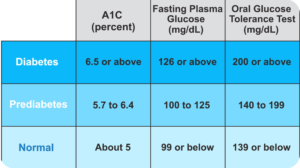Although this lens technology has been around since the 1960s, blue light-filtering glasses have only been widely available since the early 2000s. Originally invented to protect the eyes of Apollo astronauts, blue light glasses block short-wavelength, high-energy light rays that basic UV protection does not. These specialty lenses are currently offered in both plain and prescription glasses.

The current popularity of blue light glasses is due to the pervasive effects of our exposure to electronic screens throughout the day. Most of the screens we look at—from electronic tablets, smart phones, and some TVs—emit significant amounts of blue light. The blue light stimulates the human nervous system and triggers brain activity. The glasses block that light.
That’s important because research has shown that blue light can exacerbate several health conditions.
The Benefits
To understand what blue light glasses do, it’s important to know what blue light is. It is one of seven colors in our visible spectrum and is characterized by short wavelengths and higher-than-normal energy. Our eyes are exposed to both natural (sunlight) and artificial (smart phone screen) blue light. Researchers focus on a small group of specific conditions that blue light may exacerbate, and blocking the light may improve.
- Ease headaches. Although doctors and patients have long understood that bright light can make migraines worse, a study published in 2016 in the journal Brain, noted that blue, red, and amber light specifically make migraine pain worse. It stands to reason that blocking blue light could lessen the severity and potentially the length of migraine attacks. Experts believe that blocking blue light could also prevent some everyday headaches.
- Better sleep. This is one of the most exciting and promising areas of blue light-blocking research. A 2022 study found that exposure to blue light—especially late in the day—could negatively impact sleep quality and duration. Given the amount of screen-watching the average person packs into the hours leading up to bedtime, blue light glasses could potentially have a significant impact on reducing insomnia and other sleep disturbances.
- Eliminate eye strain. Another study, published in Investigative Ophthalmology & Visual Science in 2017, found that blue-light blocking lenses could diminish the occurrence of eye strain and eye fatigue.
Although it seems clear that blue light may be impacting sleep quality, and exacerbating headaches and related eye strain, this particular wavelength is not necessarily all bad. The sleep study mentioned above, for instance, also found that exposure to blue light could possibly aid athletic performance and mental focus.
In any case, if you think blue light glasses might be right for you, consult with your optometrist, or purchase a non-prescription pair and try them out for a week or so to see if they improve your symptoms.





